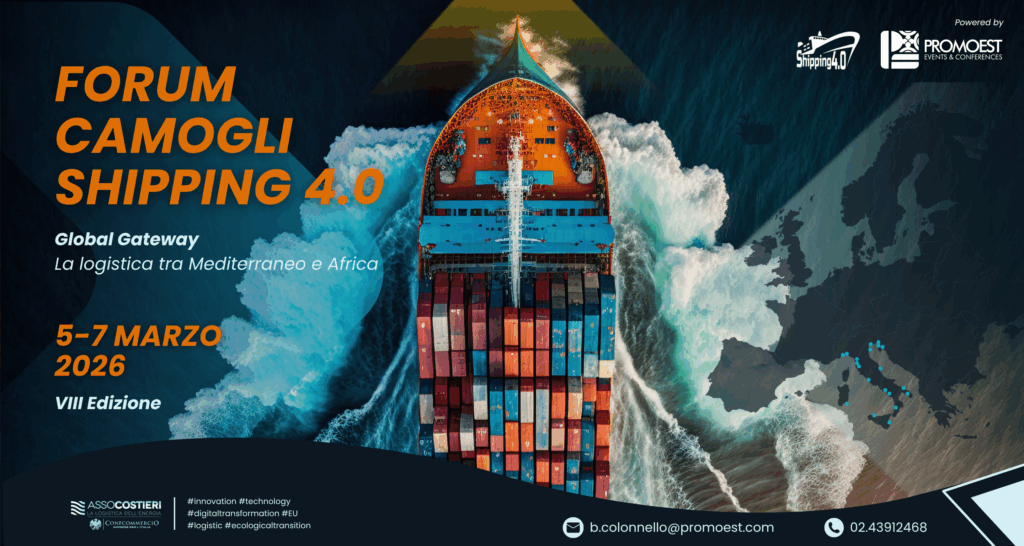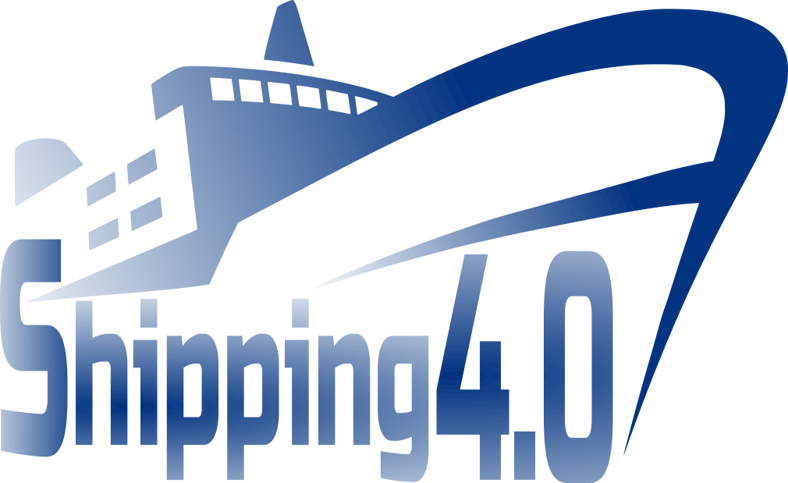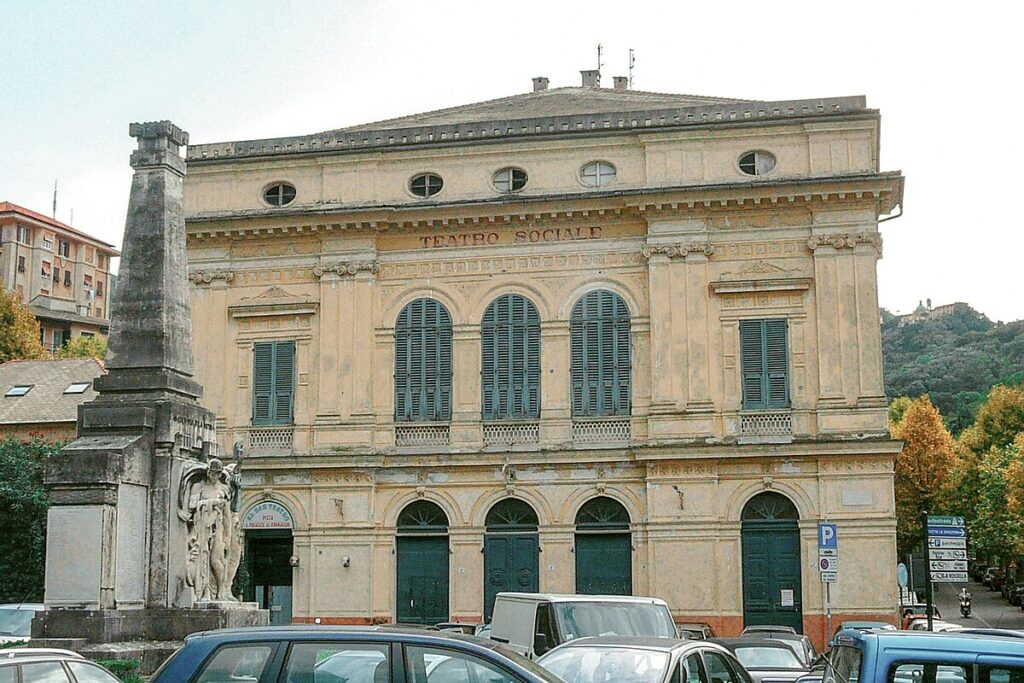Forum Camogli Shipping 4.0
5-7 Marzo, 2026
L’edizione 2026 si terrà a Camogli, città dalla storica tradizione marittima.
Il tema scelto guarda con decisione al futuro del bacino euro-mediterraneo:
Global Gateway – Mediterranean and African Logistics
Un titolo che riflette la volontà di aprire un dialogo tra le due sponde del Mediterraneo e di proiettare la logistica verso nuove prospettive di cooperazione e sviluppo con l’Africa.

Il Forum Camogli Shipping 4.0 è un’iniziativa ideata e promossa da Promoest, sviluppata nel corso di oltre due anni attraverso una serie di incontri e convegni organizzati in città strategiche come Genova, Trieste, Brindisi, Napoli, Roma, Bruxelles e a bordo di una nave MSC a Genova.
Un percorso pensato per valorizzare la storica vocazione marittima dell’Italia e contribuire allo sviluppo del settore in chiave moderna e internazionale, coinvolgendo i quattro stakeholder fondamentali: Istituzioni, Associazioni di categoria, Università, Istituti Nautici e ITS, Aziende.
#innovazione #tecnologia #trasformazionedigitale #UE #logistica #transizioneecologica
I temi di quest'anno
Il Piano Mattei e le nuove prospettive euro-africane
Il Piano Mattei rappresenta uno strumento strategico di politica economica e diplomatica per rafforzare i rapporti tra Italia e Africa, promuovere investimenti nelle infrastrutture e consolidare il ruolo del nostro Paese come hub energetico e logistico nel Mediterraneo. Questa strategia può incidere in modo determinante sulle dinamiche della logistica e dello shipping, creando corridoi euro-mediterranei più solidi e nuove opportunità di cooperazione internazionale.
Porti e potenziale dell’economia circolare
Con la crescente attenzione verso la sostenibilità e le pratiche di economia circolare, i porti europei vengono oggi considerati attori fondamentali di questa trasformazione. In qualità di porte d’accesso al commercio, hanno il potenziale per diventare hub di raccolta, smistamento e redistribuzione di materiali, favorendo un sistema circolare che massimizzi l’uso delle risorse e riduca al minimo gli sprechi.
Lavoro e logistica: oggi e domani
Il settore logistico vive una fase di grande trasformazione, che apre nuove opportunità per le giovani generazioni. La sfida è attrarre e formare nuove professionalità lungo l’intera catena del valore: dallo shipping ai porti, fino al trasporto ferroviario, stradale e interportuale. Una nuova narrazione del comparto, più accessibile e moderna, può contribuire a rendere il settore più inclusivo e capace di valorizzare i talenti del futuro.
Formazione e competenze per il futuro
Negli ultimi anni sono nate numerose iniziative formative di qualità, dagli ITS agli istituti tecnici fino ai percorsi universitari. Tuttavia, manca ancora una regia nazionale in grado di coordinare l’offerta e guidare i giovani verso le professioni del settore. Un sistema integrato di formazione e orientamento può rappresentare la chiave per favorire l’incontro tra scuole, imprese e istituzioni, e rispondere così ai fabbisogni di competenze del comparto logistico e marittimo.
Digitalizzazione e cybersecurity nella logistica
La transizione digitale sta trasformando profondamente lo shipping e la gestione portuale, portando con sé nuove opportunità ma anche rischi. Investimenti in infrastrutture digitali e sistemi di sicurezza informatica sono ormai essenziali per garantire continuità operativa e resilienza.
La location
Rassegna stampa della 7a edizione
Powered by




